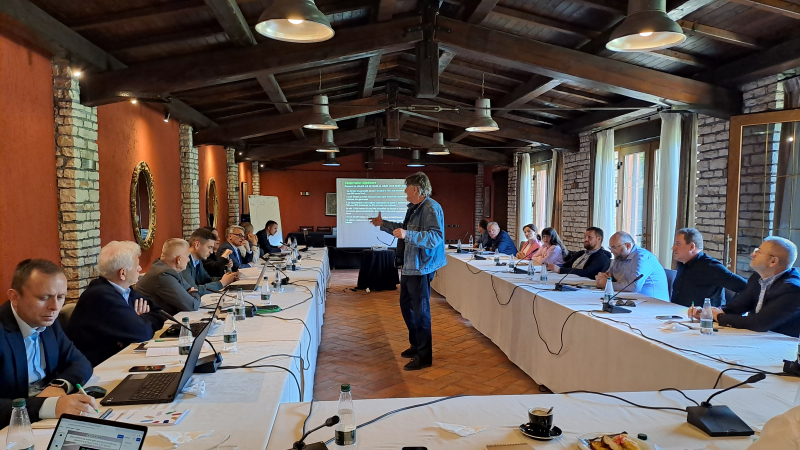
As part of the activities undertaken to implement the "POLICY ANSWERS" project (HORIZON EUROPE), supported by the European Commission, and the "Green Action Space" platform (RIINVEST & KFOS), a workshop and discussion session were recently held to explore the achievements of Kosovo in fulfilling its commitments under the Green Agenda of the Western Balkans. The workshop emphasized the need to foster synergies between different institutions and stakeholders, including research and scientific institutions, civil society, the business community, and the media, in order to effectively meet these commitments.
The session was attended by a range of experts, including researchers from the Riinvest Institute, representatives from relevant state ministries, civil society representatives, independent experts, and media personnel, who presented their achievements and progress towards implementing the ambitious commitments laid out in the Green Agenda. Participants discussed the latest achievements, challenges, and opportunities related to policy definition, strategy formulation, and the legal framework, while also presenting possible solutions with a focus on building capacity for implementation.
As part of its involvement in these projects, the Riinvest Institute has placed a strong emphasis on promoting decarbonization, circular economy, and environmental protection, including the reduction of water and air pollution. The workshop highlighted that Kosovo's institutions and businesses are soon to face significant obligations related to decarbonization, including the implementation of carbon taxes, aimed at reducing carbon dioxide emissions to 1990 levels by 2030. Such policies are expected to significantly contribute to environmental improvement, but will require addressing implications related to the export of carbon-intensive emission products in certain sectors such as energy, mining, and construction materials.
Given the complexities of this adaptation and transformation process, state institutions provided insights into the progress, obligations, and institutional challenges associated with meeting these commitments. These insights emphasized the importance of inter-institutional cooperation, legal considerations, and the actual state of environmental pollution on the ground. The workshop produced valuable findings and recommendations that will be shared with interested parties to guide future efforts in this area.